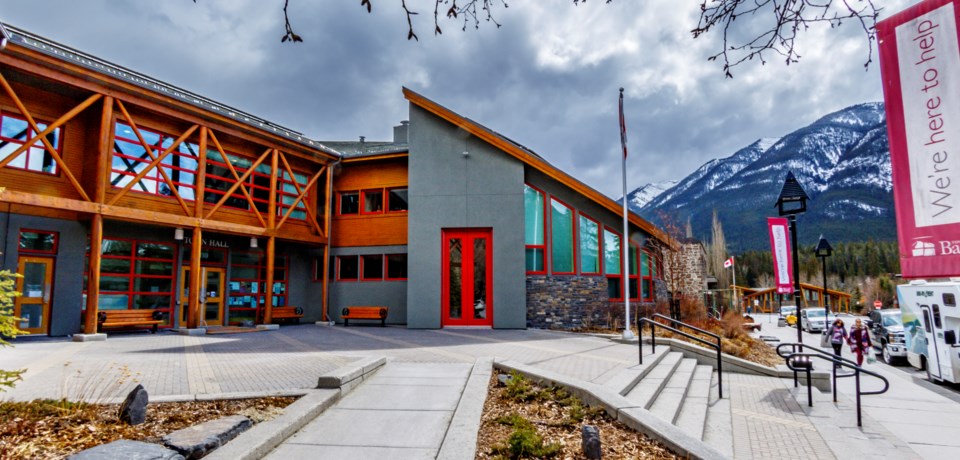BANFF – Banff taxpayers are getting a belated Christmas present from town council after elected officials voted to use part of the 2019 budget surplus to cut municipal property tax rates over the next three years.
The 2020 total overall property tax rate was sitting at 6.01 per cent – comprised of a 2.95 per cent increase to the provincial education requisition and 3 per cent for municipal property tax rates – before council considered the proposal to reduce it to 4.98 per cent as part of its deliberations on the three-year operating and capital budgets on Jan. 13.
Director of corporate services Chris Hughes recommended using the surplus to smooth out the overall property tax increase over three years, as 2021's overall tax rate was originally proposed to increase by 5.63 per cent and 2022 was 3.76 per cent.
"Right now we are anticipating upwards of $900,000 in [an unrestricted] surplus in 2019," Hughes said. "What administration would like to present is an option to use some of that anticipated surplus to offset the annual [property tax] increases in 2020 and 2021 especially."
Hughes recommended using $600,000 of the expected surplus over the next three years to reduce property taxes, with the remaining surplus to be put into the tax stabilization reserve.
A motion by Coun. Brian Standish changed the recommendation to split the surplus evenly to reduce overall property tax rates over the next two years instead. The motion was approved unanimously by council and set the increase at 4.98 per cent in 2020, 4.66 per cent in 2021 and 4.69 in 2022.
Mayor Karen Sorensen said having such a large surplus is an unusual circumstance for council to find itself in.
"I always take great pride in the way we budget and we rarely have a huge surplus," she said, noting one of the reasons for the surplus was higher than expected development levels in the community.
"I think returning some of these funds to the taxpayers in this way is a good thing to do."
While the motion passed during the Jan. 13 meeting, Coun. Peter Poole voted against it, objecting to making tax commitments in the 2022 fiscal year after the next municipal election.
Coun. Corrie DiManno noted one of the reasons the provincial requisition has increased by 2.95 per cent in 2020 was that the UCP government did not present a 2019 budget until after municipalities had set their tax rates in spring. That meant Banff under-collected taxes on behalf of the province in 2019 and had to increase rates in 2020 as a result.
"When I think about our goals around affordability and what we heard in the community through the social assessment, to me this is a way of saying, 'we hear you and we want to smooth out thenext several years of tax increases'," she said. "Especially once you look at what has been bestowed upon us by the province."
While Coun. Ted Christensen was not present for the budget meeting, he had Sorensen put forward a motion for him to reduce the overall budget for the Bear Street woonerf project by $1 million.
The total project cost is $9.5 million, after council voted to increase the budget by $3.1 million in December. The motion was defeated by unanimous vote. Coun. Chip Olver was also not present for the meeting.
Sorensen and Coun. Corrie DiManno argued the increased budget came as a result of additional information received after a detailed design process and geotechnical assessment that called for improved stormwater management, additional work at the front of the surface parking lot and more money for communications.
"My concern with this motion is there is no suggestion as to how to do that [cut $2.1 million]," Sorensen said. "I do not know how to do that and I will not support it ... the explanation for the increase was valid and important and I continue to support it."
Coun. Poole challenged the overall spending in the capital budget as being beyond the means of the municipality. He pointed to the fact that Banff is spending an average of $15 million to $30 million on capital projects over the next five years, but in the past that average has been between $10 million and $15 million.
"I am wondering when we are shooting for upwards of $30 million a year in capital [spending] if we are spending too much, too fast," Poole said. "I think we are spending too much and it is causing me big nerves and I have not been able to explain why to people on the street who ask me if our capital budget is increasing."
Poole proposed 10 motions for council to consider that would split projects over multiple years, reduce their scope and budgets, or postpone them. The result, he argued, would be to reduce the spending in 2020 by $6 million.
However, the first term councillor failed to convince his fellow council members to support his motions and all were defeated.
Changes to the three-year operating and capital budgets will return to council on Jan. 27 for final approval.




